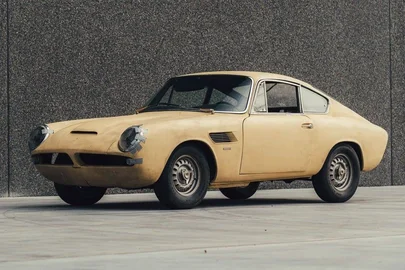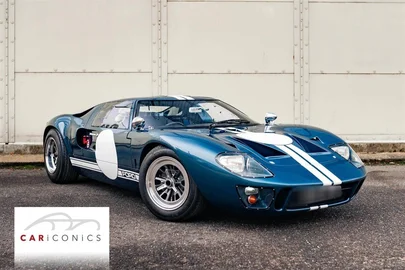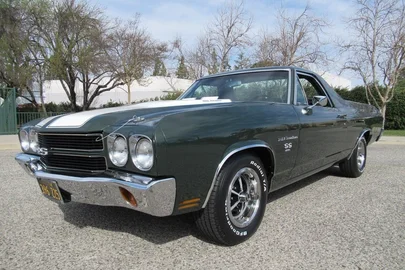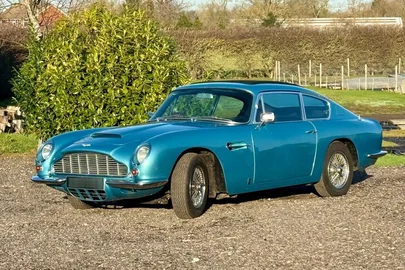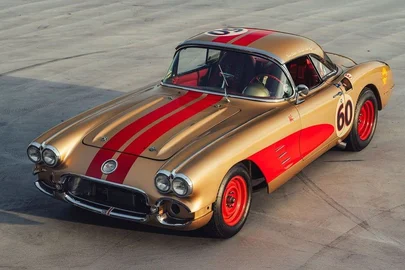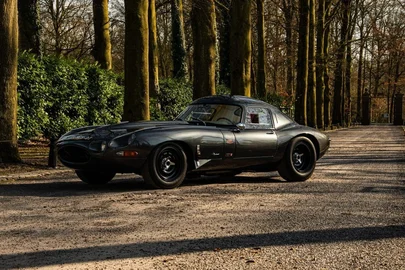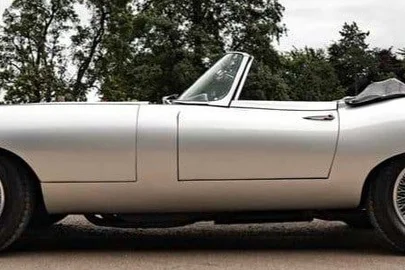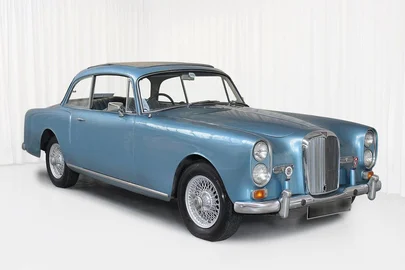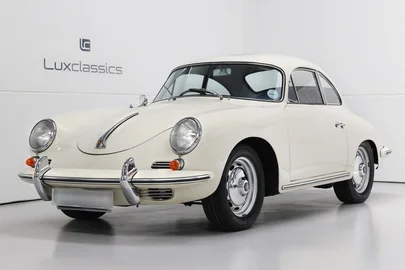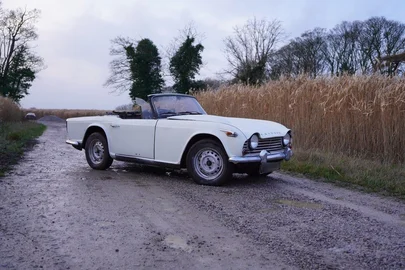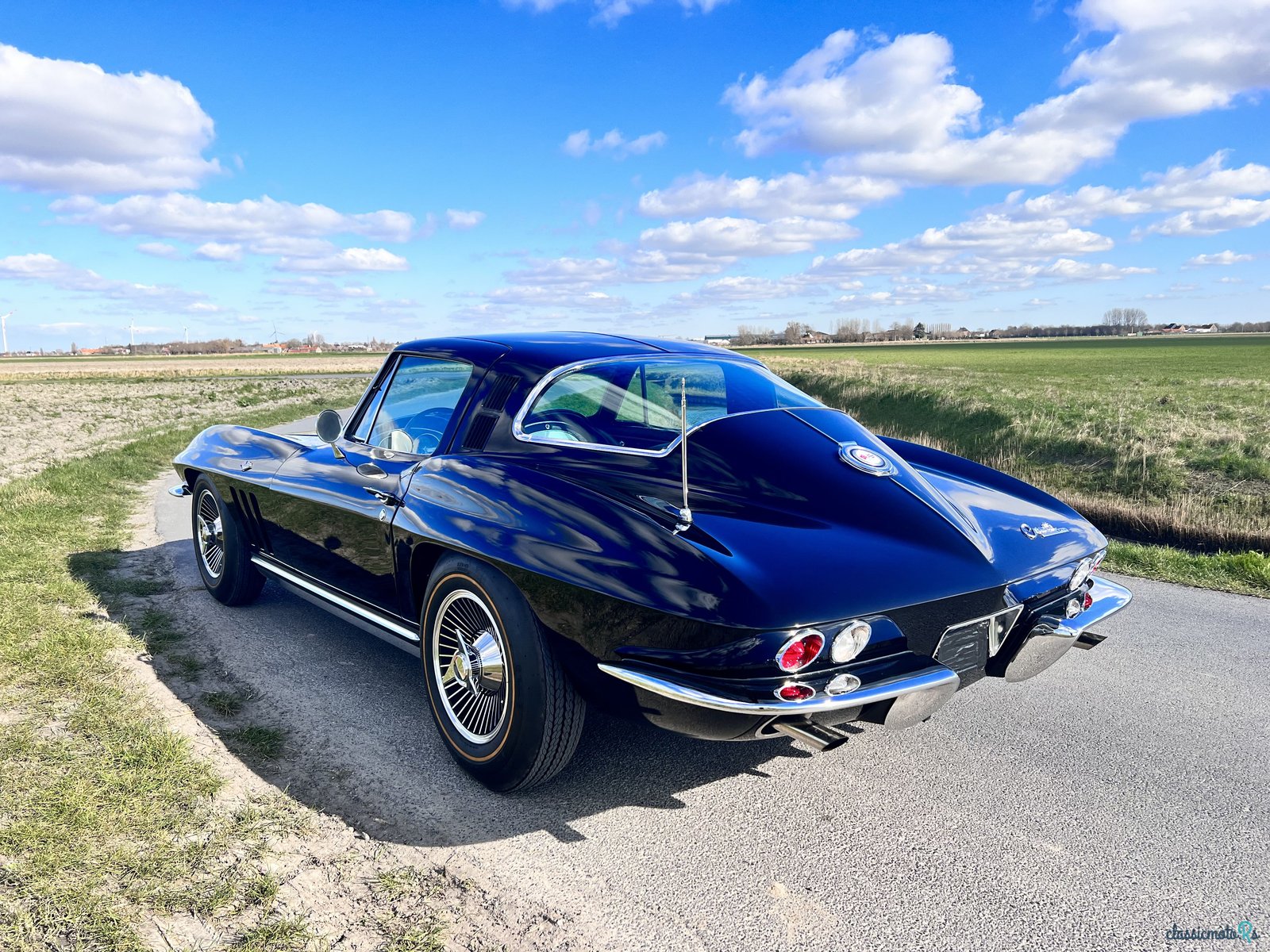
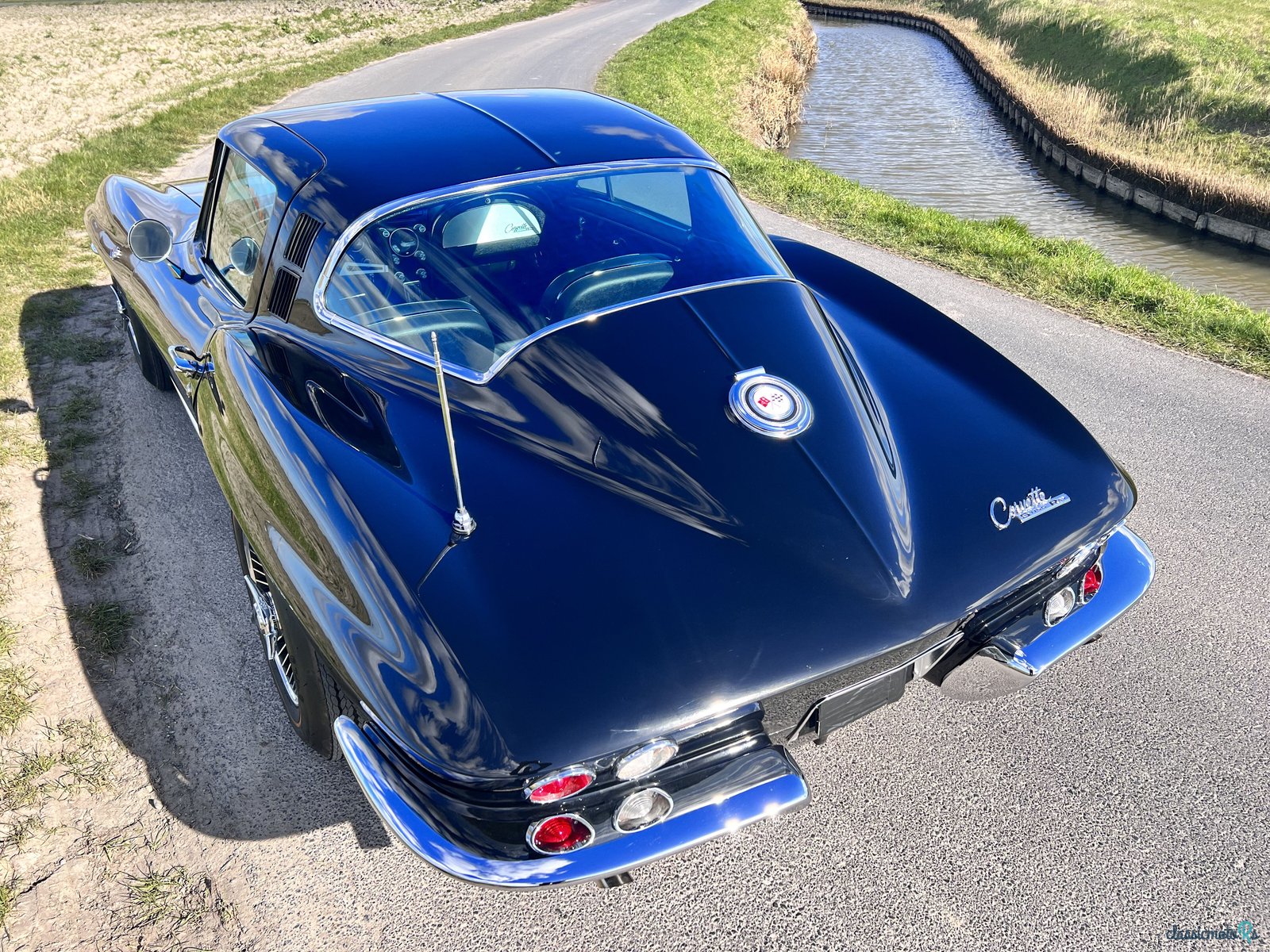
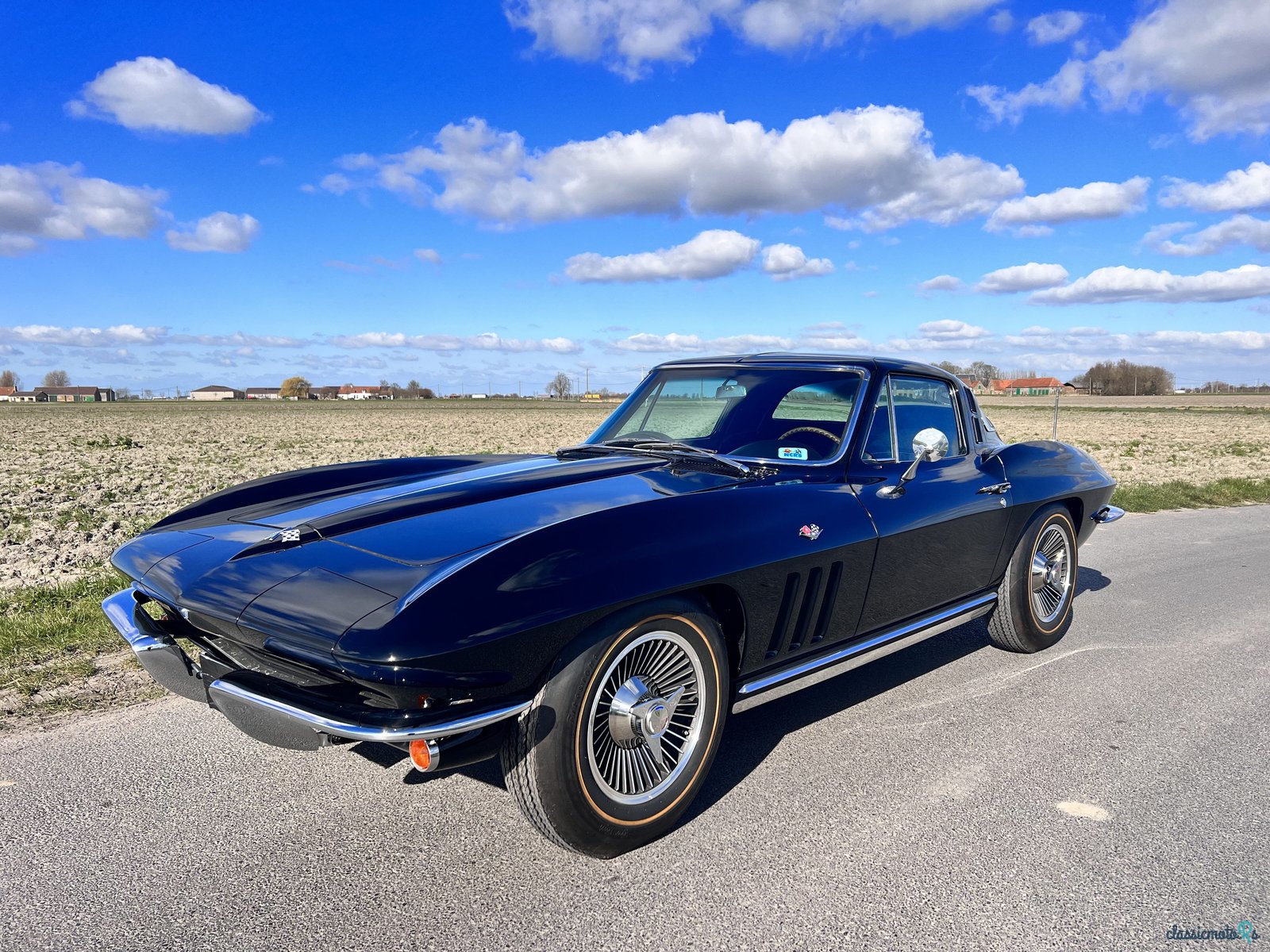
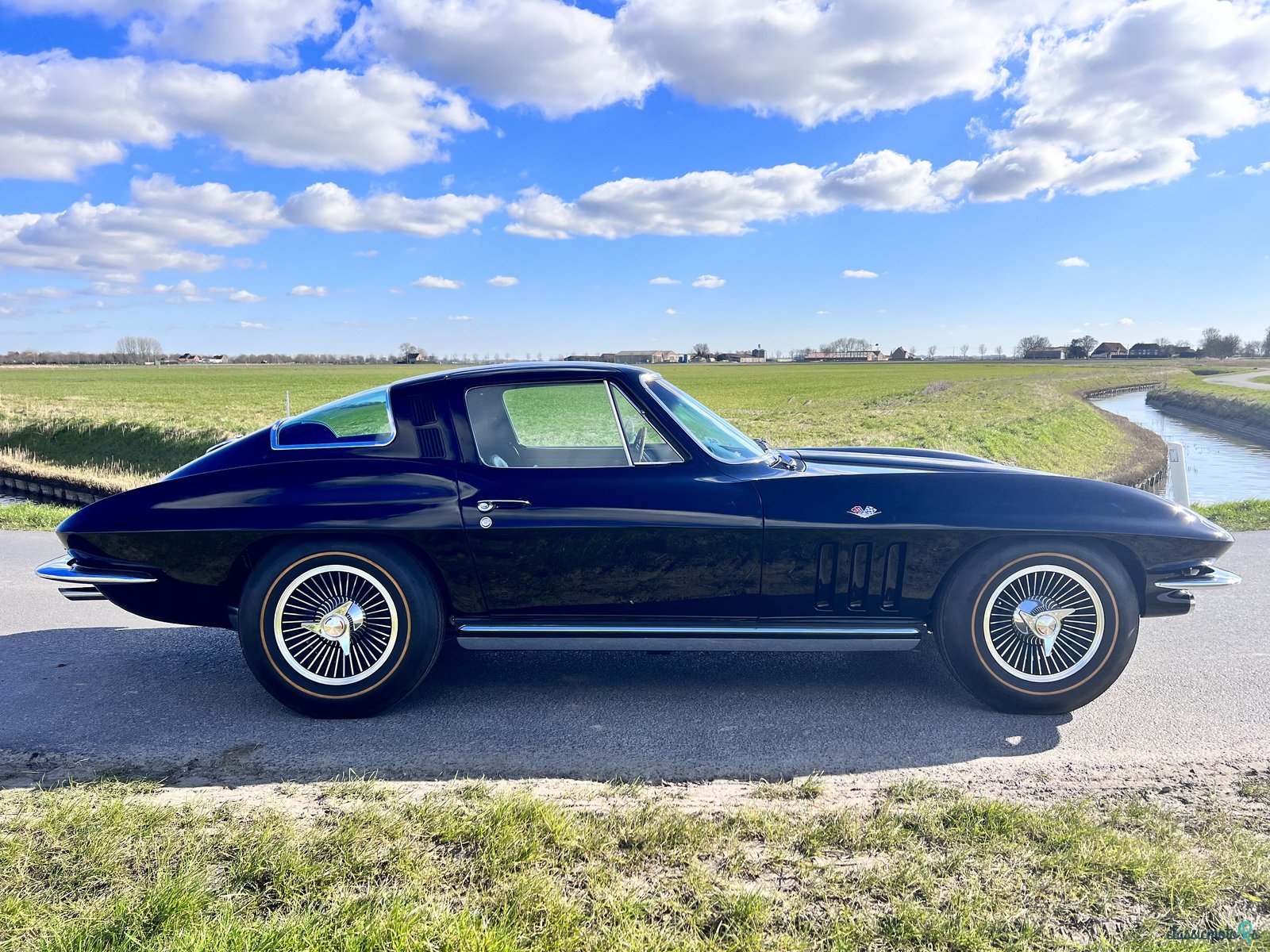
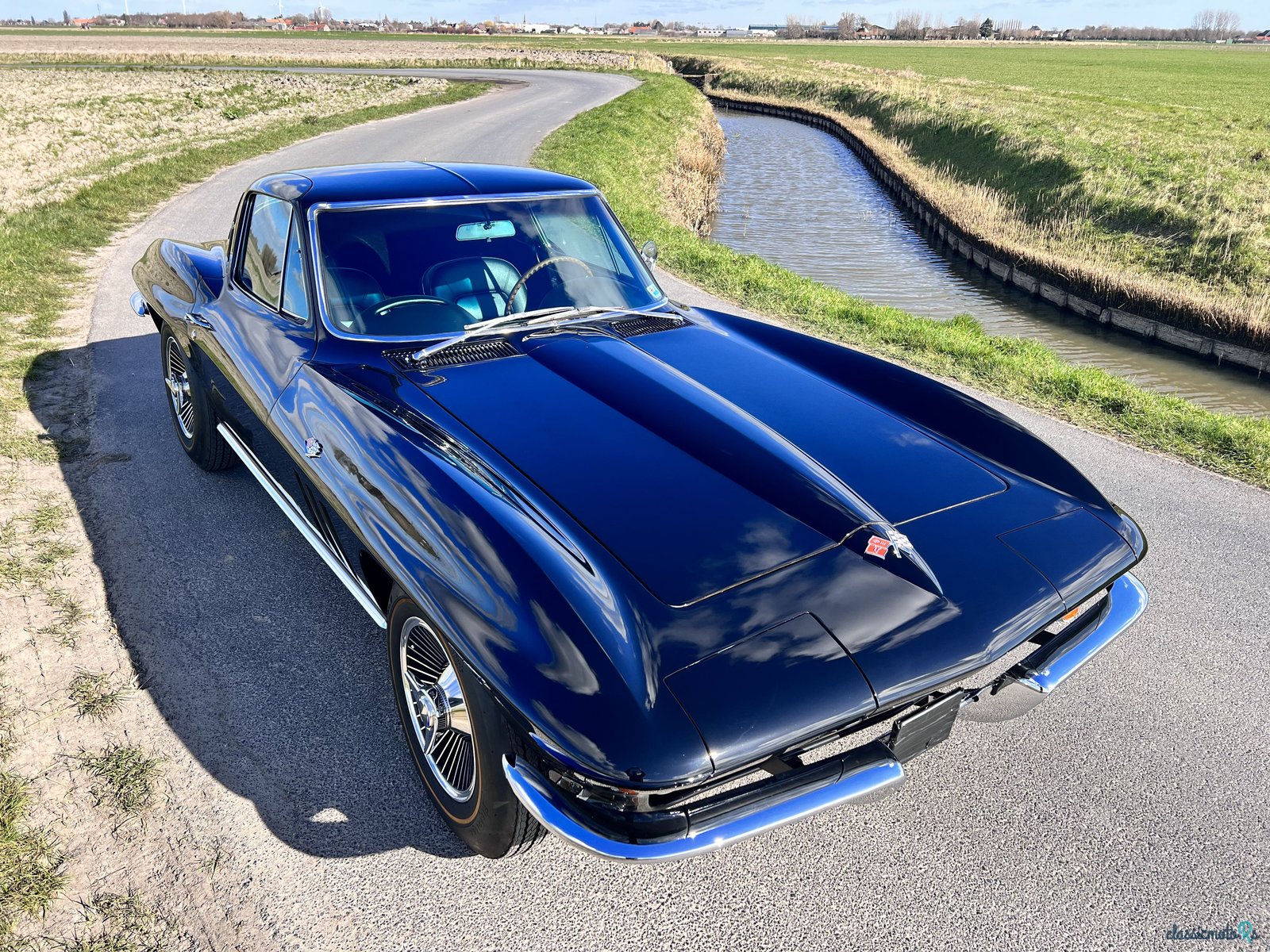
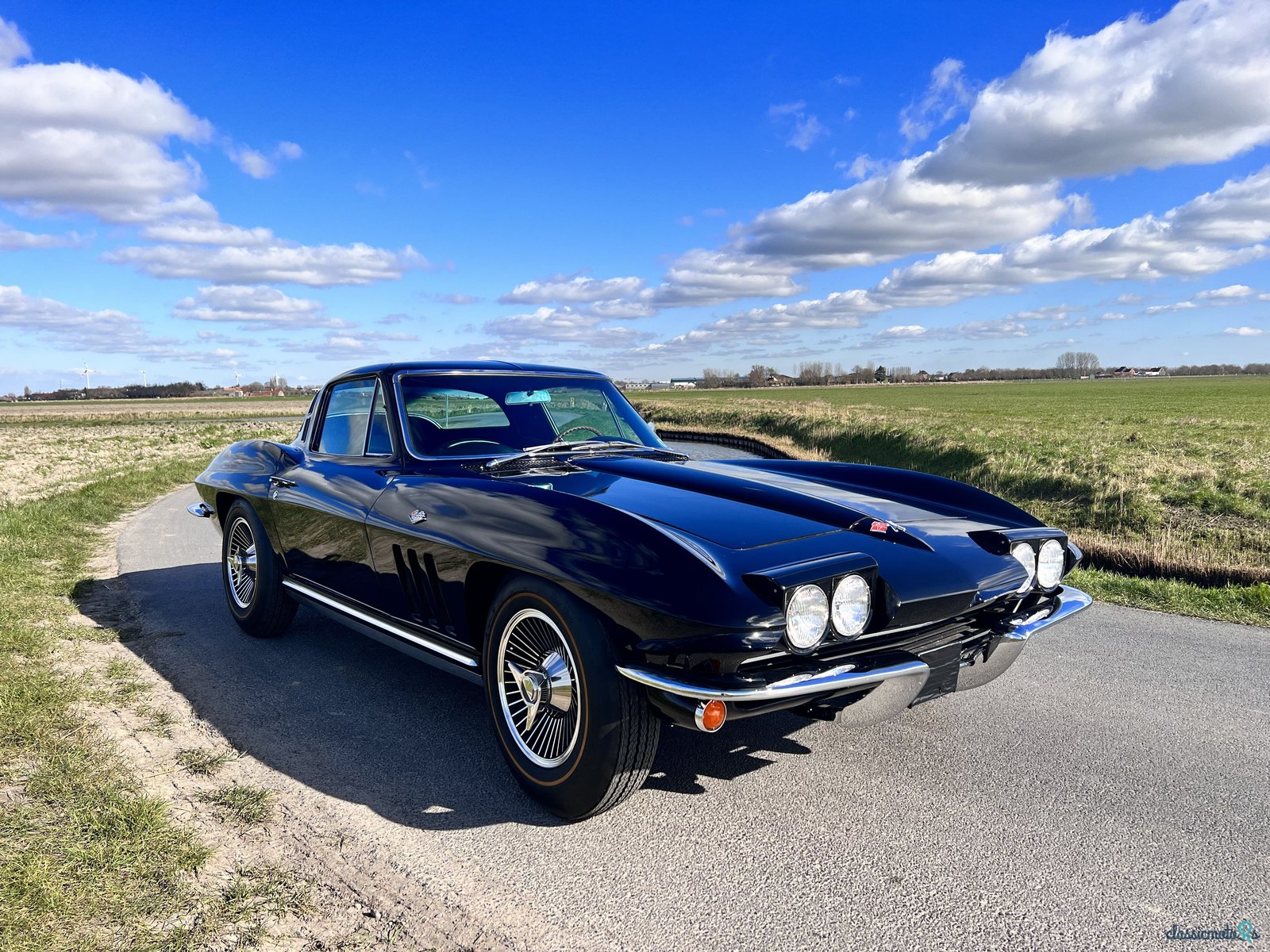
6 photos
1965' Chevrolet Corvette
Report This Ad!Rate This!Bookmark This
NegotiablePublished 3 March 2023ID: oVQxED
Expired
2 years, 11 months ago
2 years, 11 months ago
Information from the owner
Age: 58 years
Exterior color: Black
Seller's comments about 1965' Chevrolet Corvette
Price on request --- Magnificent C2 Corvette from '65 in excellent condition. This Corvette was body off restored to its factory ways. NCRS gold medal winner.
Exterior:
Paint is in excellent condition, so is the chrome. Four expensive knock off wheels with Firestone tires. Everything (wipers, lights, etc.) in working condition.
Interior:
Beautiful black interior in new condition. No tears, scratches, rips or stains.
Mechanics:
This car drives really, really good. Very steady on the road and does what is expected from it. 340HP model with the 327cu V8 engine, a dream car and engine that will give you the chills.
History:
For its third season, the 1965 Corvette Sting Ray further cleaned up style-wise and was muscled up with the addition of an all-new braking system and larger power plants. 1965 styling alterations were subtle, confined to a smoothed-out hood now devoid of scoop indentations, a trio of working vertical exhaust vents in the front fenders that replaced the previous nonfunctional horizontal "speedlines," restyled wheel covers and rocker-panel moldings, and minor interior trim revisions. The 1965 Corvette Sting Ray became ferocious with the mid-year debut of the "Big-Block" 396 cu in (6, 490 cc) engine producing 425 hp (317 kW). Ultimately, this spelled the end for the Rochester fuel injection system, as the carbureted 396ci/ 425hp option cost $292. 70 to the fuel injected 327ci/ 375hp's $538. 00. Few buyers could justify $245 more for 50 hp (37 kW) less, even if the FI cars offered optional bigger brakes not available on carbureted models.[23]:?77? After only 771 fuel injected cars were built in 1965, Chevrolet discontinued the option. It would be 18 years until it returned.
1965 also added another 350 hp small block engine (Option L79) which used hydraulic rather than solid lifters, a milder camshaft and a modestly redesigned smaller oil pan.[24] Otherwise, the 350 hp engine was cosmetically and mechanically identical to the 365 hp engine (Option L76) solid lifter engine. The smaller oil pan allowed this high output small block 350hp engine to be ordered with optional Power Steering for the first time amongst the optional stable of higher output small block engines. Power steering was previously only available with the lower 250 hp and 300 hp engines.
Four-wheel disc brakes were also introduced in 1965. The brakes had a four-piston design with two-piece calipers and cooling fins for the rotors. Pads were in frequent contact with the rotors, but the resulting drag was negligible and did not affect fuel economy. Further, the light touching kept the rotors clean and did not diminish pad life, which was, in fact, quite high: a projected 57, 000 mi (92, 000 km) for the front brakes and about twice that distance for the rear binders. Total swept area for the new system was 461 sq in (2, 970 cm2), a notable advance on the 328 sq in (2, 120 cm2) of the previous all-drum system. Per pending federal regulation, there was also a dual master cylinder with separate fluid reservoirs (only on models with power brakes for 1965)[25] for the front and rear lines. Road testers rightly applauded the all-disc brakes. Testers found that repeated stops from 100 mph (160 km/ h) produced no deterioration in braking efficiency, and even the most sudden stops were rock-stable. The drum brakes remained available, however, as a $64. 50 credit option, but only 316 of the 23, 562 Corvettes built that year came with drums.[17][16] A side exhaust system appeared as an option as did a telescopic steering wheel. Also available were alloy spinner rims, at US$322 a set.[23]:?77?
Exterior:
Paint is in excellent condition, so is the chrome. Four expensive knock off wheels with Firestone tires. Everything (wipers, lights, etc.) in working condition.
Interior:
Beautiful black interior in new condition. No tears, scratches, rips or stains.
Mechanics:
This car drives really, really good. Very steady on the road and does what is expected from it. 340HP model with the 327cu V8 engine, a dream car and engine that will give you the chills.
History:
For its third season, the 1965 Corvette Sting Ray further cleaned up style-wise and was muscled up with the addition of an all-new braking system and larger power plants. 1965 styling alterations were subtle, confined to a smoothed-out hood now devoid of scoop indentations, a trio of working vertical exhaust vents in the front fenders that replaced the previous nonfunctional horizontal "speedlines," restyled wheel covers and rocker-panel moldings, and minor interior trim revisions. The 1965 Corvette Sting Ray became ferocious with the mid-year debut of the "Big-Block" 396 cu in (6, 490 cc) engine producing 425 hp (317 kW). Ultimately, this spelled the end for the Rochester fuel injection system, as the carbureted 396ci/ 425hp option cost $292. 70 to the fuel injected 327ci/ 375hp's $538. 00. Few buyers could justify $245 more for 50 hp (37 kW) less, even if the FI cars offered optional bigger brakes not available on carbureted models.[23]:?77? After only 771 fuel injected cars were built in 1965, Chevrolet discontinued the option. It would be 18 years until it returned.
1965 also added another 350 hp small block engine (Option L79) which used hydraulic rather than solid lifters, a milder camshaft and a modestly redesigned smaller oil pan.[24] Otherwise, the 350 hp engine was cosmetically and mechanically identical to the 365 hp engine (Option L76) solid lifter engine. The smaller oil pan allowed this high output small block 350hp engine to be ordered with optional Power Steering for the first time amongst the optional stable of higher output small block engines. Power steering was previously only available with the lower 250 hp and 300 hp engines.
Four-wheel disc brakes were also introduced in 1965. The brakes had a four-piston design with two-piece calipers and cooling fins for the rotors. Pads were in frequent contact with the rotors, but the resulting drag was negligible and did not affect fuel economy. Further, the light touching kept the rotors clean and did not diminish pad life, which was, in fact, quite high: a projected 57, 000 mi (92, 000 km) for the front brakes and about twice that distance for the rear binders. Total swept area for the new system was 461 sq in (2, 970 cm2), a notable advance on the 328 sq in (2, 120 cm2) of the previous all-drum system. Per pending federal regulation, there was also a dual master cylinder with separate fluid reservoirs (only on models with power brakes for 1965)[25] for the front and rear lines. Road testers rightly applauded the all-disc brakes. Testers found that repeated stops from 100 mph (160 km/ h) produced no deterioration in braking efficiency, and even the most sudden stops were rock-stable. The drum brakes remained available, however, as a $64. 50 credit option, but only 316 of the 23, 562 Corvettes built that year came with drums.[17][16] A side exhaust system appeared as an option as did a telescopic steering wheel. Also available were alloy spinner rims, at US$322 a set.[23]:?77?
